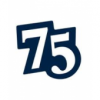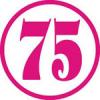
Established in 1892, as a school for teacher and business education , Central Michigan University is now among the 100 largest public universities nationally. And, it is now teaching aspiring fashion designers the skills they need to compete in the industry. The school embraces the basics like patterning and tailoring, while incorporating the technology that has changed the way textiles are created. Internships are a requirement in the Apparel and Merchandising Program. Study programs in New York City and overseas, are also encouraged.
To learn more about the program, we talked to Central Michigan University’s Human Environmental Studies Chair Megan Goodwin, along with Apparel Merchandising and Design Professors Tanya Domina, Maureen MacGillivray, and Carol Beard
(This email interview has been edited for length & clarity).
FS: Please describe the strengths of your Apparel Design Program
CMU: The Apparel Merchandising and Design program is a strong and well-established program focusing on both apparel design and apparel merchandising at both the undergraduate and graduate levels. Strengths include:
- Apparel design coursework that includes advanced construction techniques, flat patterning, tailoring, draping, fashion illustration, functional design and couture techniques.
- Multiple courses in computer-aided-design that results in a design student who is highly proficient in using the Adobe Creative Suite and industry specific software to design apparel and textile prints.
- An opportunity to design, construct and display student design work in the annual student fashion show.
- Integration of industry-sponsored projects into the curriculum.
- A required senior portfolio class where students assemble both hard and digital professional portfolios.
- A high graduate placement rate regionally, nationally, and internationally with top retailers and designers.
FS: Can you highlight some of the special coursework you offer to students pursuing a degree in fashion design?
CMU:
- Couture Techniques – couture design class explores and applies techniques relevant to couture garments. Students are prepared to design and evaluate relevant application of couture design details.
- CAD – apparel design students can complete up to three computer-aided-design courses that gives them advanced skill in Adobe Illustrator, Photoshop as well as industry-specific software
- Product Development - The product development class is a collaborative effort of both design and merchandising students where integration of merchandising and design functions are used through team-based approach to simulate a real world business environment. This occurs along with industry collaboration as a total process for apparel product development.
- Study Abroad in Paris – Students spend four weeks in Paris examining the business and design of European fashion, with a strong emphasis on the luxury industry. Students study with professionals working in the haute couture industry and get hands-on experience learning haute couture techniques that are incorporated into their design portfolios.
- Functional Apparel Design – this capstone apparel design course examines the socio-psychological needs and physiological functions of the human body that interface with clothing worn under various environmental conditions. Students demonstrate the ability to integrate knowledge of apparel design, textiles, and the needs and functions of the human body through the development and evaluation of a prototype designed for a specific user group
Through our program, apparel design students are exposed to sophisticated laboratories and industry-relevant equipment needed to foster their skills in the apparel fields. The apparel CAD laboratory offers students design- to-production technology systems including the latest CAD software, color management systems, 3D visualization software, apparel product information management systems, augmented reality solutions, and a variety of design creation tools. The apparel product development laboratory, with cutting edge pattern making technology and sewing equipment, teach students how to take their designs from ideation through production, providing students with the skills for successfully careers in industry.
FS: Is knowledge of merchandising important to apparel designers?
CMU: With the growth of private label, it is critical that designers have a solid foundation in merchandising theory, its function and importance to a company’s success. The Apparel Merchandising and Design program at Central Michigan University is unique in its set of required courses, providing design students with a merchandising background and merchandising students with a foundation in design. This required set of merchandising courses provides our apparel design students with a unique skill set making them attractive to employers.
FS: To what degree is it essential or beneficial for students to have existing knowledge of fashion or design?
CMU: The apparel design program at Central Michigan University is designed to take aspiring young designers with no sewing background and give them the design skills necessary to be successful designers.
FS: Which skills do you consider to be most critical for a career in fashion?
CMU: In all areas of the textile/apparel industry, employers are looking for apparel design graduates with good communication skills, creativity, and who are skilled enough to work with the industry’s technological demands. Having a strong foundation in technology such as a variety of computer-aided-design software, product data management (PDM) software, and digital pattern-making skills is absolutely essential to being successful in the design industry.
FS: How has technology changed the fashion industry?
CMU: Technology has become a crucial component of the fashion industry and has resulted in a completely electronic design to production to marketing process.
FS: Do you require internships or other hands-on experience?
CMU: All students are required to complete a well-structured, quality 300 hour internship experience during the summer between their junior and senior year. The required internship gives the student an opportunity for career development and a professional industry experience; while also providing a hands-on understanding of the job search and interview process. Students are located regionally, nationally and internationally with companies that are considered industry leaders. The internship experience often leads to a career offer with starting salaries that are very competitive.
FS: What are the common career paths for graduates of your program? Where do you see the strongest demand in the job market now?
CMU: Our graduates find employment in variety of apparel related positions including: apparel design, computer-aided-design, technical design, pattern-making, product development and trend forecasting. In addition to traditional apparel firms, the apparel design graduates find employment in a wide variety of different textile related industries including automotive, aerospace, leather, interior and commercial textile companies.
FS: What advice would you give to aspiring fashionistas?
CMU: Follow your passion!
Check out more interviews at the Fashion-Schools.org Fashion School Interview Series.





